Electromagnetics Blog Posts

Measuring the SAR of a Human Head Next to a Wi-Fi Antenna
Many wireless devices include antennas that expose consumers to RF energy. Designers of these devices need to understand the health implications caused by electromagnetic exposure, such as SAR.
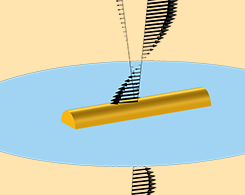
Modeling the Scattering of Light Off of an Object on a Substrate
A common modeling scenario in wave electromagnetics: computing the scattering of light off of a structure patterned on top of a uniform dielectric substrate.
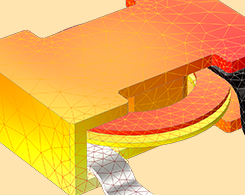
How Do I Use Gauge Fixing in COMSOL Multiphysics®?
Here’s your guide to using gauge fixing in your electromagnetics simulations in COMSOL Multiphysics®, from determining if it is necessary to imposing current conservation.
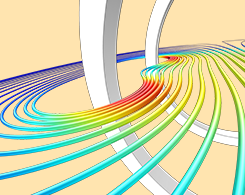
What Is Gauge Fixing? A Theoretical Introduction
Investigate the consequences of Helmholtz’s theorem when applied to Maxwell’s equations, and when using scalar and vector potentials to represent physical fields.
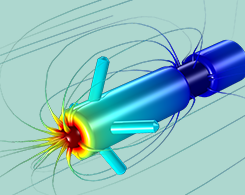
Modeling a Pacemaker Electrode in COMSOL Multiphysics®
What happens when the heart doesn’t pump the way it should? Pacemakers maintain the heart rate by monitoring natural electrical signals. Pacemaker electrodes are a key part of these devices.
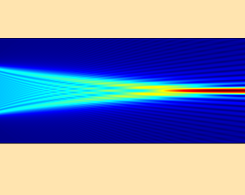
How to Perform Lens Simulations Using the Wave Optics Module
Lens simulations in wave optics can be difficult to perform, as they usually require a lot of mesh elements. Learn how to sidestep this issue using the functionality of the Wave Optics Module.
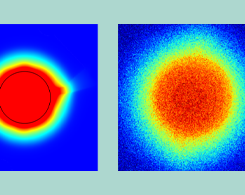
Developing a Silicon MEMS Chip for On-Demand DNA Synthesis
The development of genome editing tools like CRISPR-Cas9 has increased the demand for DNA synthesis technology. Researchers are creating a DNA synthesis platform to broaden horizons in the field.
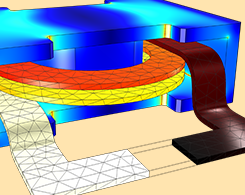
Which Study Type Should I Use for My Electrothermal Analysis?
What’s the best interface to use when implementing electrothermal analyses in COMSOL Multiphysics? We go over the interfaces, study types, and multiphysics couplings for high and low frequencies.
